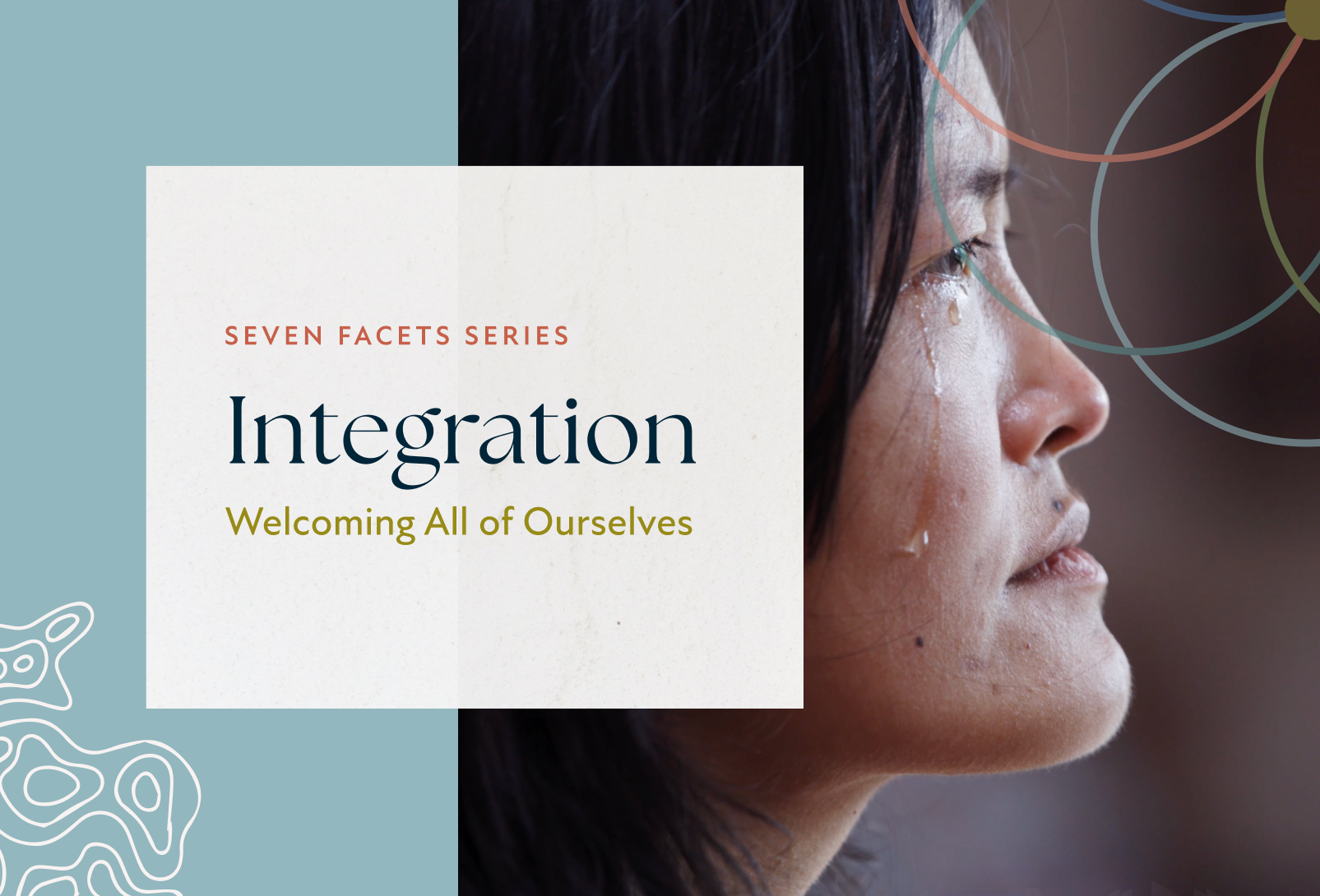There's something profound that happens when we stop trying to be someone other than who we are. When we cease the exhausting project of improving ourselves and instead turn toward what we've been avoiding, rejecting, or simply haven't yet learned to embrace.
Integration is about this turning toward. It's the recognition that our essence and our gifts are often bound up in the very experiences we've labeled as problems—our wounds, our shadows, the parts of ourselves we've learned to hide or disown. This isn't about fixing ourselves or transcending our humanity, but about discovering that our wholeness includes everything we are. It includes clarifying what we are and are not, releasing what is not ours and embracing our true authentic wholeness. And in the process, supporting the healing, transformation, and integration of these aspects of ourselves.
We all have this experience—in groups or relationships, there are parts of us that can show up there, and parts of us that can't. There are relationships or contexts that we go into where we feel like we don't even belong. And there are aspects of ourselves that we project onto others and groups, that we can’t fully see or take responsibility for in ourselves. For example, perceiving anger in another, when we haven’t yet recognized it in ourselves. Or being irritated by another’s boundaries, because we haven’t allowed ourselves to recognize or hold our own boundaries.
Ultimately, at the human scale, what we're trying to do is find a way to integrate so all the dimensions of human experience can find their healthy and full expression in this world, without alienation and breakdown, to the degree that we can.
Prior to integrating dimensions of ourselves that we have perhaps exiled or become alienated from, we contribute to the fracturing in the world. In the face of fear we might separate ourselves from another or a group of humans and see them as the source of the challenges that we're facing instead of being able to recognize that we're all implicated in this. And so in that othering is the fracturing, which plays out in larger scale ways and also in very intimate and close, smaller scale ways. It shows up as blaming or distancing ourselves from others, which is actually a distancing from that very experience in ourselves.
Intimate community is our practice space for integration. In authentic relationship, we meet the edges of our own acceptance. We discover which parts of ourselves we feel safe to reveal and which we keep hidden. We practice showing up as we are rather than as we think we should be. Integration happens at the level of the collective, too, as we work with collective shadows and patterns and find the wholeness of us.
When conflict arises between two people, we can lean towards that conflict with faith and trust that there's a greater wholeness that's trying to come forth. We can even recognize each other as our teachers in the sense that, in the face of that conflict, somebody is pointing towards something that hasn't yet been differentiated and integrated.
This relative wholeness is a continuously unfolding process, held in the understanding that in our awakened nature we are also, paradoxically, already whole, already belonging.
